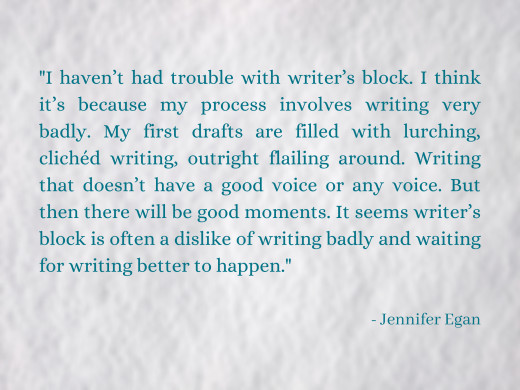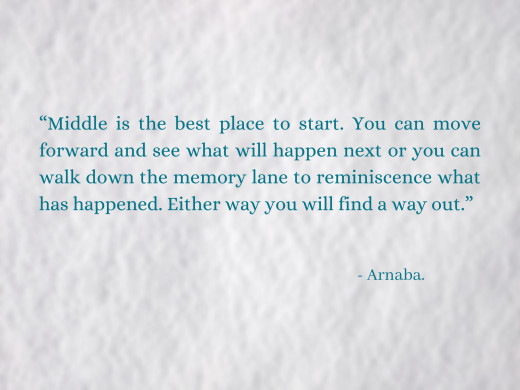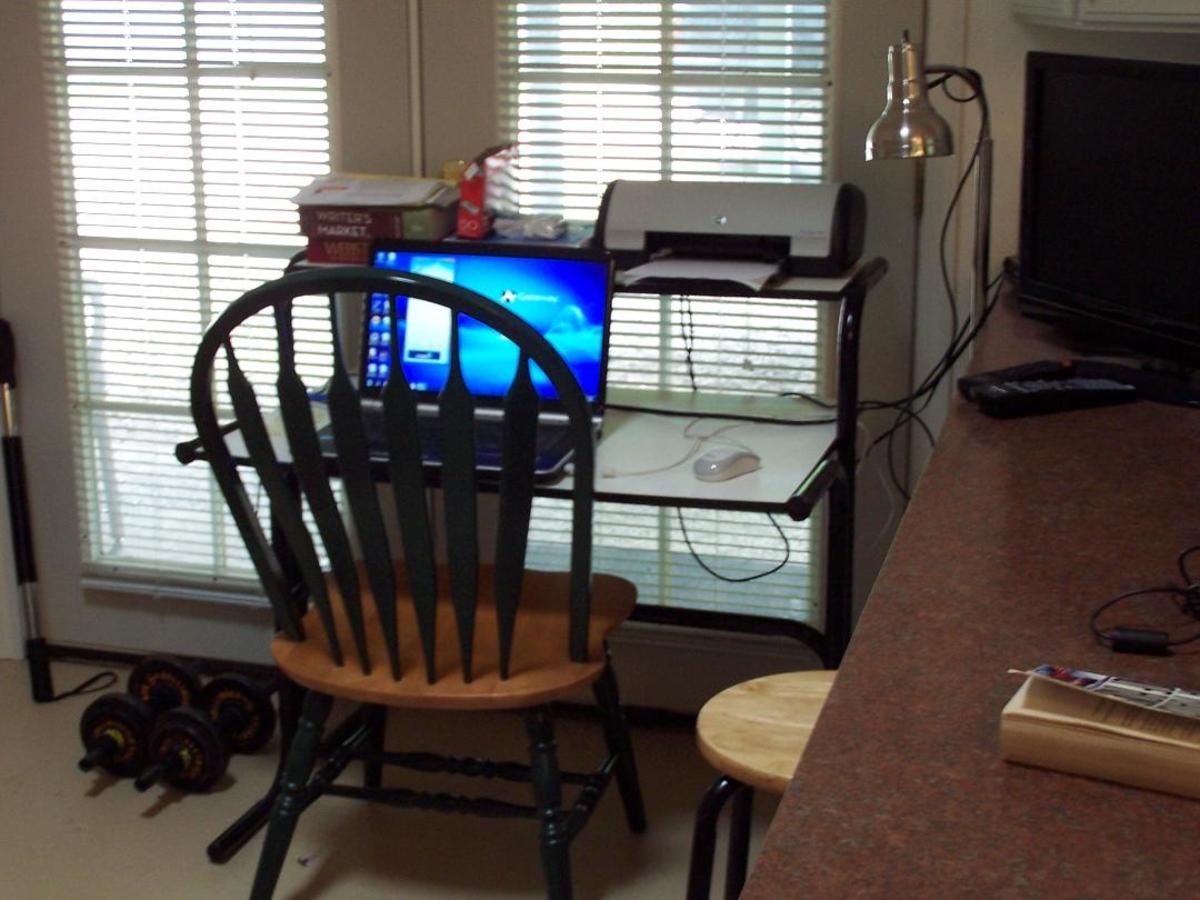7 Powerful Ways to Permanently Overcome Writer’s Block - Part 2
Introduction
Writer’s block is one of the most severe issues that any writer faces in his life. It is a state of mind where the writer is unable to write irrespective of his desire to do the same. If you have gone through it then you will know how serious it is. It can strangle your ability to come up with any written material for days, weeks, or even months. You might hope to recover on your own because time heals everything but writer's block is something that needs deliberate and conscious efforts.
You have to work and dedicate time to deal with it efficiently. Therefore, here's the second installment of practices you need to follow to eradicate it from your life, once and for all.
Following are the 7 Powerful Ways to Permanently Overcome Writer’s Block and resume your writing spree:
1. Allow Yourself to Write Trash
It is essential for you to allow yourself to write without any inhibition or expectations. Write for the sake of writing. Allow yourself to write trash. Don’t judge yourself.
Being a writer, you might have set high standards of writing for yourself. You want to create great copies every time you sit to write. But this expectation to create great copies leads you to the writer’s block.
You need to relax your writing parameters a bit while you are struggling to write in the first place. To be either good or bad, you have to write something. If you cant write at all then there won't be anything to judge. So, write with your full heart. Keep the scrutiny part for editing. Don’t forget to take a break (preferably a long break) before sitting to edit your work.

2. Stop the Grammar Police in Your Head
The “Grammar Police” in your head can lead you to the darkest pit of writer’s block. The fear of producing bad copy with bad grammar or silly spelling mistakes can terrify your writing soul and restrict the free flow of your thoughts and words.
Try focusing on writing when you are writing. Avoid editing or proofreading while writing. Let your write-up be full of grammatical errors and spelling mistakes. Allow yourself to commit mistakes. Allow your writer-soul the freedom to write without premonitions or prejudices. This will help you to freely write and defeat the mental barrier that has been redistricting you to write.
Once you are done with your writing, leave it, and give yourself some break. Either you don’t come back to your writing ever again or come back after a long break; it is your choice. Remember, you were writing for yourself, therefore, there is no compulsion for you to share your work with others.
Note: Whenever I am stuck with a blank page, I start writing about whatever comes to my mind without any pause for 15 mins. Mostly, these write-ups are trash. They don't mean anything at all. I never want anyone in the world to see those snippets. Wondering why I write it? Because once I am done writing, the blank page is gone and blankness of my mind gets a stimulation. The words that I write might not mean anything but the practice of writing anything, is everything.
3. Experiment with Different Tools of Writing
Suppose you are stuck in between of nowhere. You might have tried all the possible ways you knew to get out. But you find yourself in the same place even after a month later. What do you think you haven’t done to get out of that place? Experiment.
Yes, start experimenting with the resources at hand. In the case of writer’s block, try to write in a new format or writing platform. Shift to Google docs from word docs to break the monotony. You can directly write on the blogging platform of your choice. You can bring the change by switching your font from caliber to Times New Roman, Courier New, or any other fonts. Change the font size or color to sprinkle the essence of newness. Never stop experimenting; be it the writing platform or your writing style altogether.
This will give your brain the illusion of newness (if not the newness exactly). It will help you to think in a new and refreshed way. Bringing novelty in your writing practice will transform the way you think and consequently help to dissolve your writer's block, bit by bit.
4. Start in the Middle
If you can't figure out where to start then start in the middle. Don’t think much, just start writing. Be it a blog post or a story; your urge to write a perfect introduction can hamper your writing intensity and disrupt your flow of writing.
Start writing the main points of your blog post or the important incident of your story without thinking about the beginning. Once you get into the writing trance, you will be able to catch up with the beginning later.
Note: Personally speaking, I never start with the introduction. I write the main points of my blog or article first and then deal with the introduction and conclusion. For stories, I start with the conflict. Then I try to weave a story around it. This way I always know what’s the focal point of my story.

5. Take a Nap
Sleeping is the best thing you can do when you are stressed or suffering from writer’s block. Why? Because it will soothe your sense, refresh your mind, and allows you to feel rejuvenated. Taking naps when you need them is an equally powerful hack to deal with your condition. You will never be able to overcome writer’s block in a tired and fatigued state of the frame. A nap will wake you up and offer a fresh perspective on your work, mood, and thoughts.
6. Challenge Yourself
Challenges add spice to your life. If monotony in writing is hampering your creativity then take a writing challenge to jazz up your writing mood. Creative writing challenges are a great way to start thinking and writing new things with a fresh perspective.
Challenges are an opportunity to start again. It compels you to have some fun with writing. The challenge is to remember why you started writing in the first place. You started writing because you love to write. As it became your work, everything became boring. Creative writing challenges will help you find "the fun" and relaxation in your writing.
7. Start a Daily Journal
Journal is a notebook or diary where you write and record events, memories, incidents, and everything that concerns or affects you. As a writer, a journal can help you record your ideas, thoughts, and consequential information for your next write-up. The importance of journaling daily is that it exponentially increases your scope for writing when you suffer from writer’s block.
Primarily, it helps you to simply write. As you are supposed to write your thoughts, actions, and reactions, or anything that affects you, you don’t feel burdened while writing. It will come naturally to you. This will put you in the practice of writing.
Secondly, your quest for one brilliant idea that was necessary to get you started again with writing will be answered through your journal. Chances are that you will find an idea to ponder upon; an idea that will compel you to write again. This idea might be the one that will shatter the barrier of the writer's block, which was troubling you for so long.
Conclusion
Writer's block is a universal phenomenon yet its cure is individual-based. One solution does not fit all. Thus, you have to find out what works for you. There is a possibility that all of these solutions help you come out of your problem. But chances are, only one or two of these solutions helping you.
The best practice to tackle your way out of the writer's block will be to try all of them simultaneously or one by one. But try them consistently until you don't need any assistance to encourage you to write.
This content is accurate and true to the best of the author’s knowledge and is not meant to substitute for formal and individualized advice from a qualified professional.
© 2020 Arnaba Saha








